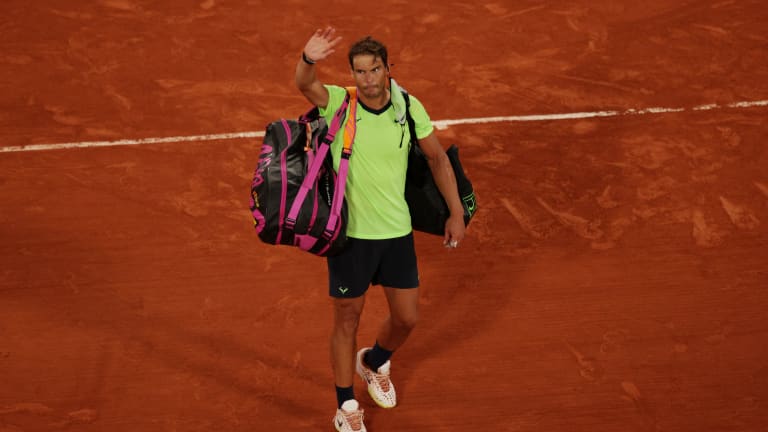Nadal's Hiatus
Rafael Nadal's decision to miss Wimbledon, Olympics part of larger gambit to prolong career
By Jun 17, 2021ATP Delray Beach, USA
"He's a good looking guy": Sebastian Korda plays off Delray Beach emcee's slip-up after Cobolli win
By Feb 22, 2026Tennis.com Interview
Michigan State’s ace Matthew Forbes stokes "a fire that was missing" in college tennis
By Feb 21, 2026Stat of the Day
At just 22, Carlos Alcaraz has already won titles in 14 different countries after victory in Doha, Qatar
By Feb 21, 2026WTA Dubai, UAE
"A great birthday present": Jessica Pegula dismisses Elina Svitolina in Dubai for 10th career title
By Feb 21, 2026ATP Delray Beach, USA
Inspired by his mom's attendance, Learner Tien mounts Delray Beach comeback against Tiafoe
By Feb 21, 2026Indian Wells, USA
Venus Williams awarded Indian Wells main draw wild card for singles and doubles
By Feb 21, 2026Stat of the Day
Tomas Martin Etcheverry records 100th win of career to reach Rio de Janeiro semifinals
By Feb 20, 2026WTA Dubai, UAE
Elina Svitolina “fights like Ukraine,” wins three-hour Dubai tussle vs. Coco Gauff
By Feb 20, 2026ATP Doha, Qatar
Carlos Alcaraz dethrones Andrey Rublev, rides unbeaten streak into Doha final
By Feb 20, 2026Rafael Nadal's decision to miss Wimbledon, Olympics part of larger gambit to prolong career
At 35, Rafael Nadal says he’s skipping Wimbledon and the Olympics to try to “prolong my career.” Roger Federer, who started skipping Roland Garros at 34, should give Rafa hope that there will be life, and major titles, in his late 30s.
Published Jun 17, 2021
Advertising
Advertising

Nadal will miss Wimbledon for just the fourth time since his 2003 debut (Getty Images).
© Getty Images